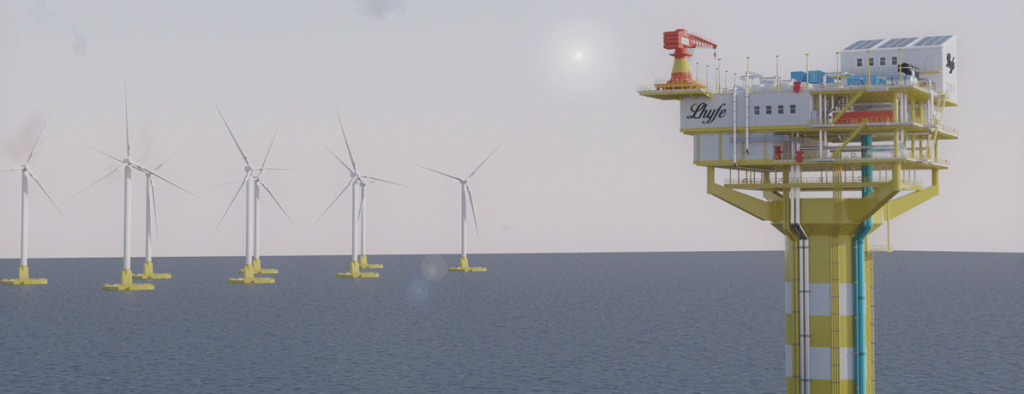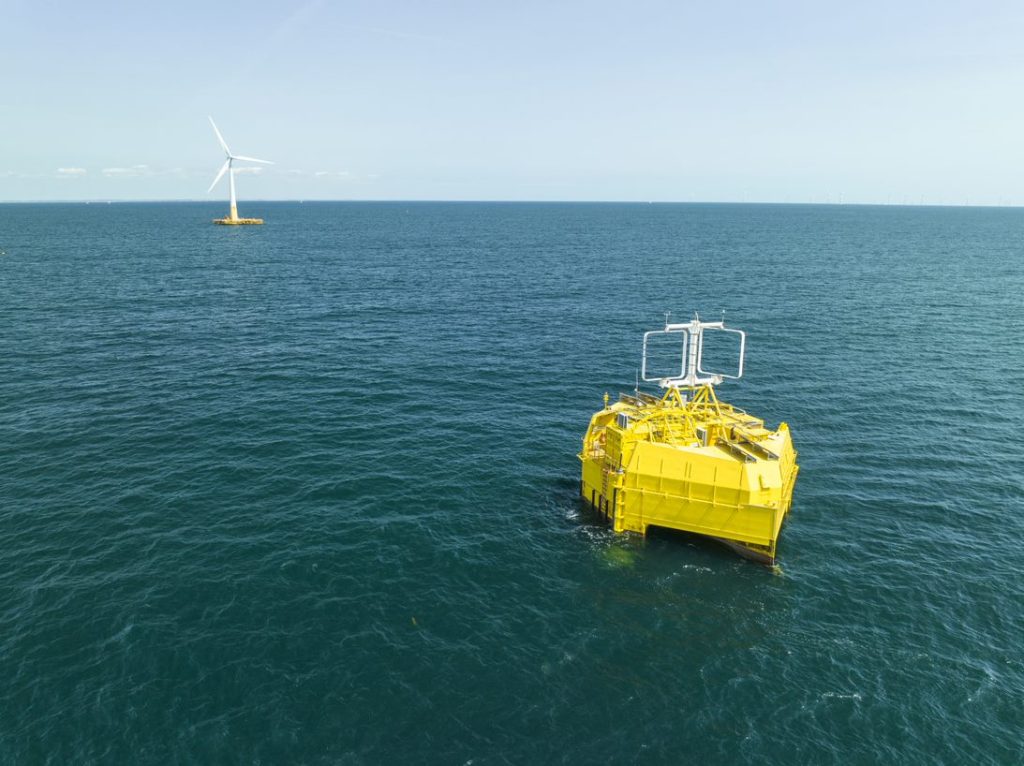
Viewpoint: Creating hydrogen at sea

By Jeremy Williams
Three years ago I wrote about a proposal to install an electrolyser in an offshore wind turbine and make hydrogen. It would allow offshore wind farms to produce gas instead of electricity, a fairly radical proposal. It was just an idea at the time, but three years later, something very similar has recently been achieved. The world’s first offshore hydrogen plant has just delivered its first gas.
Built by the company Lhyfe, the Sealhyfe platform is based near Le Croisic, off the French coast. It was tested onshore last year, and then was towed into position and plugged into an undersea hub last month. It is now drawing energy from a nearby floating wind turbine, and water from the sea. The seawater is desalinated and purified and then split in a 1 MW electrolyser. The platform can generate 400kg of hydrogen a day.

Sealhyfe is designed to be unmanned and autonomous, safely operating 20km out at sea in even harsh conditions. It will now be studied in detail to see how it performs, informing the design of larger commercial platforms.
Those are already on their way, and Lhyfe just announced a system ten times bigger for deployment in 2026. Called Hydrogen Offshore Production for Europe (or HOPE), it will be based a kilometre off the Belgian coast in an area designated for testing offshore technologies. If all goes to plan, it will create four tonnes of hydrogen a day and pipe it to the mainland for use in local businesses.
As I’ve described before, hydrogen isn’t a green technology in itself. It’s only as good as the technology used to create it, and the most common way is to split it from fossil gas. That’s proving to be a handy way for the oil and gas companies to muscle in on the energy transition and prolong their gas sales. Creating it with renewable energy and an electrolyser makes it a genuinely a green energy option, ready to be used in transport or industry. For some things, such as the steel industry or aviation, hydrogen looks like the best solution to get them to zero carbon. So we need pioneering projects like these ones that prove that clean commercial production is possible and that there’s a market for it.
There’s another angle that interests me: if it works, hydrogen could be a new focus for places in the world that have established expertise in offshore operations. Places like Scotland, where whole communities currently rely on the dwindling activity in the North Sea, and where jobs are at risk from net zero policy and falling reserves. Can we recycle our North Sea infrastructure to deliver clean hydrogen instead? Some people think so. If we can, it could play a role in a just transition that doesn’t leave oil and gas workers unemployed as the world leaves those fuels behind.
First published in The Earthbound Report.